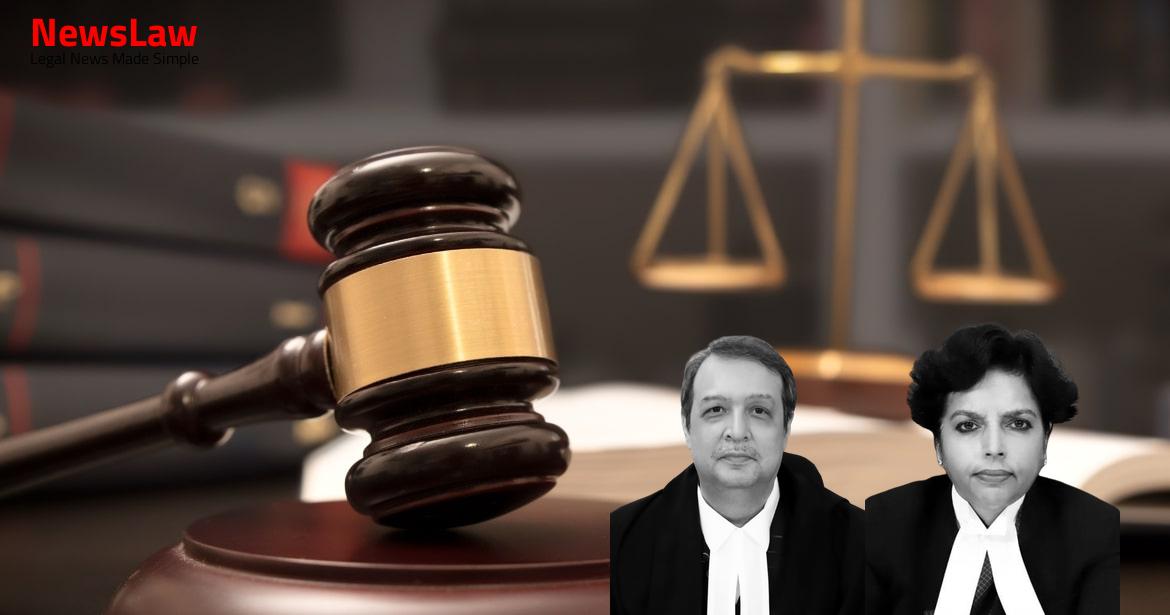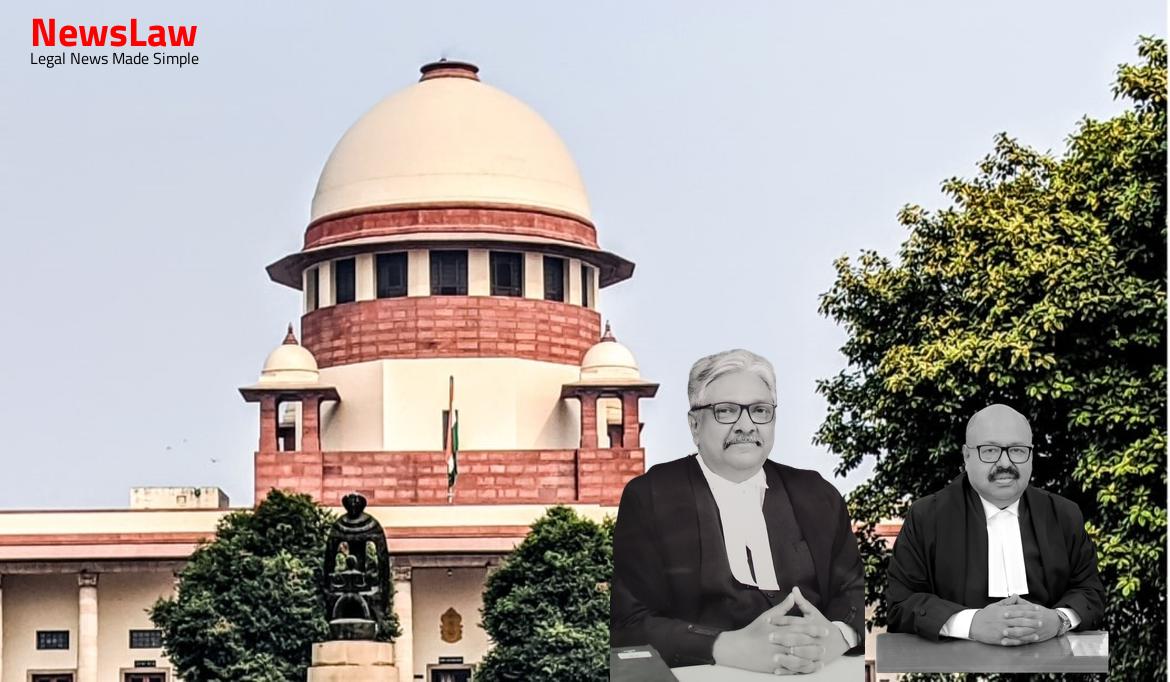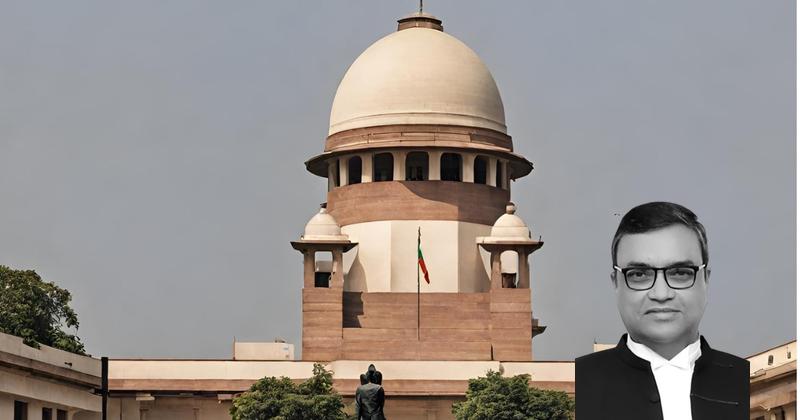Following the decision of the Delhi High Court in Babita Puniya, a batch of writ petitions under Article 226 of the Constitution of India came to be instituted before the Delhi High Court seeking the benefit of the Babita Puniya judgment. They were appointed in terms of a circular dated 25 November 1991 issued by the IAF which provided that the officers would initially be granted Short Service Commission for a period of five years, at the end of which they would be considered for the grant of Permanent Commission subject to suitability and availability. The Indian Air Force issued advertisements pursuant to the policy circular inviting applications from women to join as SSCOs, with a representation that the women officers would be initially granted SSC for a period of 5 years, but at the end of tenure, 4 PC would be granted subject to vacancies and suitability of the officer.
Also Read: https://newslaw.in/case-type/civil/courts-analysis-on-compliance-with-resolution-plan-conditions/
On 25 May 2006, a policy was issued by which provision of PC to male officers was discontinued and the stipulation of women officers for consideration of PC as mentioned in the policy circular of 1991 was withdrawn.
In terms of the HRP dated 25 May 2006, some of the appellants qualified and were granted a second extension of Short Service Commission for the period 2003- 2008, and were later released during the period between 2007 and 2010, having rendered the maximum permissible service. The High Court issued the following directions in Paragraph 61 of the judgment: “ 8 12.
The grant of PC to women SSCOs is no longer res integra in so far as the Air Force is concerned since the judgment of the Delhi High Court was not challenged before this Court by the Indian Air Force.
Also Read: https://newslaw.in/supreme-court/recall-of-order-and-legal-analysis-on-resolution-plan-requirements/
The Delhi High Court in the impugned judgment dated 11 August 2011 held that the benefit of the Babita Puniya judgment was limited to those women officers who were still in service when the writ petition was decided or those who had approached the Court by filing petitions but had retired during the pendency of the proceedings in Babita Puniya’s case.
Though the appellants were not parties to the proceedings before the High Court which resulted in the decision in Babita Puniya and would hence not be governed by paragraph 61(3) of the operative directions, they would fall within the purview of paragraph 61(4), which is an additional category over and above the category specified in paragraph 61(3); ii.
Following the decision of the High Court in Babita Puniya, the claim of the women SSCOs was required to be considered in terms of the Human Resources Policy promulgated by the IAF on 19 November 2010 but consideration has not taken place in pursuance of the applicable policy 13 circular; iv.
The appellants were neither serving in the IAF on 12 March 2010 when the judgment of the Delhi High Court in Babita Puniya was rendered nor had they approached the High Court while they were in service. While implementing the judgment of the Delhi High Court, the Government of India and the Ministry of Defence issued orders on 5 August 2011 in terms of which 463 serving SSCOs (88 male and 375 female) were considered for PC in addition to the 44 women SSCOs who had already been considered for the grant of PC under the judgment of the Delhi High Court. Paragraph 61(3) of the judgment of the Delhi High Court provided that women SSCOs of the IAF who had opted for PC but were not granted PC but allowed only an extension of their Short Service Commissions were entitled to PC at par with men SSCOs with all consequential benefits. However, the benefits were to be made available only to those women officers who were in service and to those who had approached the High Court by filing petitions though they had retired during the course of the pendency of the 18 petitions. Paragraph 60 of the decision of the Delhi High Court in Babita Puniya is extracted below: 19 24. This Court observed that the directions of the Delhi High Court in its judgment dated 12 March 2010 envisaged that the benefits were to be made available to those “women officers in service who had instituted proceedings 20 before the High Court and had retired during the pendency of the writ petitions”, and that by virtue of direction (iv), it was envisaged that those women officers who had not attained the age of superannuation for PC officers would be reinstated with all consequential benefits. The appellants are all officers who are in service since their initial appointment in 1993.
All the women officers were eligible to be considered for grant of PC between years 2000 to 2003, but they were only given an extension of SSC in teeth of the legitimate expectation which was held out in the initial terms and conditions of appointment.
The Delhi High Court in the Babita Puniya judgment dated 12 March 2010 had also applied the doctrine of legitimate expectation and observed that the doctrine of legitimate expectation, grounded in the rule of law, required regularity, predictability and certainty in government dealings with the public, operating on procedural and substantive matters. However, following the logic of the earlier decision of this Court in Secretary, Ministry of Defence v. The extra- ordinary constitutional power entrusted under Article 142 has been earlier invoked by this Court in Secretary, Ministry of Defence v. All the women SSCOs governed by the present batch of cases shall be considered for the grant of one-time pensionary benefits on the basis that they have completed the minimum qualifying service required for pension; ii. The case of these officers shall be considered sympathetically by the Air Force authorities on the same footing.
Case Title: WG.CDR. A.U. TAYYABA ( RETD). Vs. UNION OF INDIA (2022 INSC 1206)
Case Number: C.A. No.-000079-000082 / 2012



